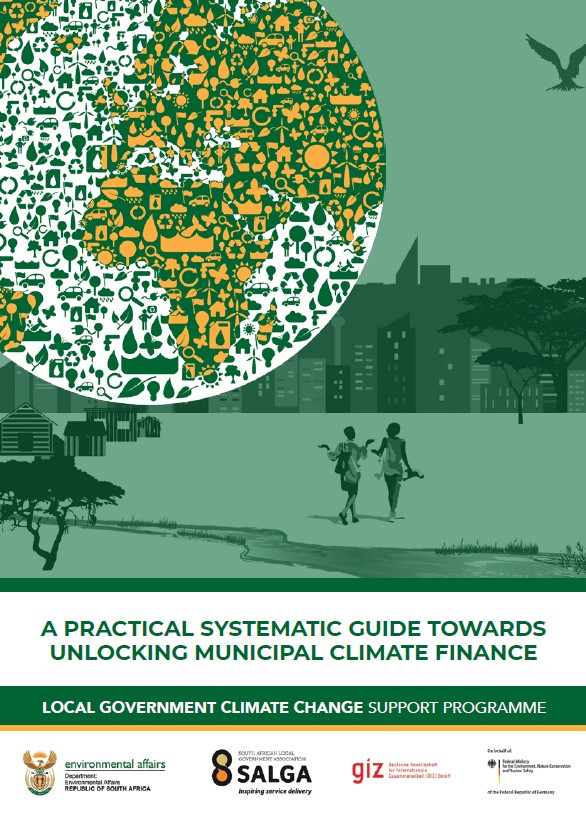Description
« Municipal officials have a crucial role to play in making South Africa’s communities and economy more resilient. This training manual has been developed to assist municipal officials to conceptualize and implement local climate action by increasing understanding of how to finance this important work. It is intended to be a practical guide to support municipalities with project preparation, by introducing key principles and considerations for planning and designing projects to implement local climate action. »
Extract from the foreword
Climate change is already a measurable reality, and South Africa, along with other developing countries, is vulnerable to its impacts. South Africa has warmed significantly over the past eight decades, with parts of the country having warmed at twice the global rate. Drastic warming of more than 4 – 6 °C is projected for South Africa over the next few decades, making climate change the defining context for South Africa’s development, with economic, social and ecological ramifications. Climate change poses a significant risk to South Africa’s development gains, exacerbating the existing national challenge of widespread poverty, unemployment, and inequality and; undermining the country’s efforts to achieve the United Nations Sustainable Development Goals (SDGs) and Africa’s Agenda 2063. However, these challenges also present opportunities for both climate adaptation, mitigation and the green economy. In this context, climate finance has become an important instrument to support local government in addressing the challenges and harnessing opportunities associated with climate change.


